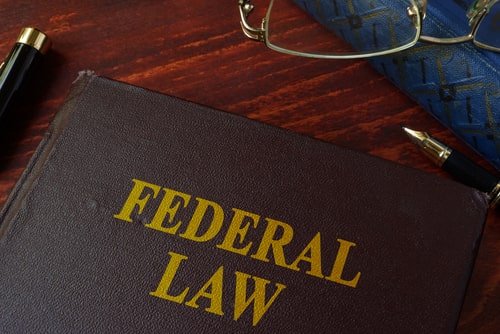Recent Blog Posts
How Do Federal Crime Investigations Work?
 Federal crime investigations are complex processes that involve multiple agencies and strict adherence to legal procedures. In Texas, federal law enforcement agencies such as the FBI, DEA, and ICE work together to investigate and prosecute crimes that fall under federal jurisdiction. A Texas lawyer can help you explore the key aspects of your specific federal crime investigation.
Federal crime investigations are complex processes that involve multiple agencies and strict adherence to legal procedures. In Texas, federal law enforcement agencies such as the FBI, DEA, and ICE work together to investigate and prosecute crimes that fall under federal jurisdiction. A Texas lawyer can help you explore the key aspects of your specific federal crime investigation.
The Initiation of a Federal Investigation
Various factors, such as the following, can trigger federal investigations:
- Reports from victims or witnesses.
- Referrals from state or local law enforcement agencies.
- Information gathered by federal agencies through their own intelligence efforts.
- Grand jury subpoenas or indictments.
Once a potential federal crime is identified, the appropriate federal agency will begin its investigation.
Five Things to Know about Self-Defense Laws in Texas
 When confronted with a potential threat of harm or violence, you might be legally entitled to use force in self-defense under specific conditions. Understanding the basic principles that govern self-defense in Texas is crucial. There are five critical aspects of self-defense laws to be aware of. A Texas attorney can provide crucial support to fortify your case to the fullest extent.
When confronted with a potential threat of harm or violence, you might be legally entitled to use force in self-defense under specific conditions. Understanding the basic principles that govern self-defense in Texas is crucial. There are five critical aspects of self-defense laws to be aware of. A Texas attorney can provide crucial support to fortify your case to the fullest extent.
The “Stand Your Ground” Doctrine
Texas follows a “stand your ground” or “no duty to retreat” doctrine for self-defense. A person who has a right to be present at a particular location – such as their home, workplace, or any other place they have a legal right to be – generally has no duty to retreat before using force in self-defense against a perceived attack or threat.
How to Challenge a DWI Charge in Texas
 Being charged with driving while intoxicated (DWI) is a serious matter that can have severe consequences on your life. However, just because you have been charged does not mean you are automatically guilty. There are several ways to challenge a DWI charge, and exploring all your legal options with a Texas lawyer is crucial.
Being charged with driving while intoxicated (DWI) is a serious matter that can have severe consequences on your life. However, just because you have been charged does not mean you are automatically guilty. There are several ways to challenge a DWI charge, and exploring all your legal options with a Texas lawyer is crucial.
Challenging the Traffic Stop
The first step in challenging a DWI charge is to examine the circumstances surrounding the traffic stop that led to your arrest. Police officers must have reasonable suspicion that you committed a crime or traffic violation to pull you over legally. If the officer did not have a valid reason to stop you, any evidence obtained during the stop could be deemed inadmissible in court.
Questioning the Field Sobriety Tests
Law enforcement officers often use field sobriety tests to determine if a driver is impaired. However, these tests are subjective and can be influenced by various factors, such as age, medical conditions, or the environment in which they are conducted. A lawyer can challenge the administration and interpretation of these tests to challenge their validity.
What Constitutes Human Trafficking in Texas?
 If you have been accused of human trafficking offenses, it is crucial to understand precisely what constitutes this crime under state law. A Texas lawyer can help you, as these cases can be complex. It is important to understand the legal definition and components of human trafficking according to Texas statutes.
If you have been accused of human trafficking offenses, it is crucial to understand precisely what constitutes this crime under state law. A Texas lawyer can help you, as these cases can be complex. It is important to understand the legal definition and components of human trafficking according to Texas statutes.
What the Law Says for Human Trafficking
Under the Texas Penal Code Section 20A.02, human trafficking is defined as intentionally or knowingly causing another person to engage in specific exploitative acts through force, fraud, or coercion. These acts include:
- Forced labor or services
- Prostitution or other commercial sex acts
The key is proving that element of compelling the victim through illicit means like physical abuse, false promises, or threats. It is important to note that human trafficking is frequently prosecuted at the federal level as well, under laws like the Trafficking Victims Protection Act (TVPA). Federal prosecutors can bring charges if the trafficking activities involve interstate or international transportation of victims. Under the TVPA, human trafficking crimes can result in up to life imprisonment, depending on the specific circumstances. Federal cases often carry harsher penalties than state prosecutions.
Your Rights During a Police Search in Texas
 It is important to understand your rights when interacting with law enforcement in any criminal law matter, particularly during a police search. Knowing your rights can help you confidently navigate these situations and protect your interests. A Texas lawyer can assist you in understanding the aspects of police searches and what you should do if you find yourself in such a situation.
It is important to understand your rights when interacting with law enforcement in any criminal law matter, particularly during a police search. Knowing your rights can help you confidently navigate these situations and protect your interests. A Texas lawyer can assist you in understanding the aspects of police searches and what you should do if you find yourself in such a situation.
The Fourth Amendment and Probable Cause
The Fourth Amendment to the U.S. Constitution guards people from unfair police searches and seizures. Generally, officers need a solid reason or a court-approved warrant to search someone’s property. Probable cause exists when an officer has a reasonable belief, based on facts and circumstances, that a crime has been committed or that evidence of a crime will be found in a specific location.
When Police Can Search Without a Warrant
There are some exceptions to the warrant requirement. Police can conduct a search without a warrant under the following circumstances:
What to Do If Facing a Federal Computer Data Charge
 If you have been accused of a federal computer or data crime, it is important to take action immediately to protect yourself. As a Texas resident, you have certain rights and options under state cybercrime laws, even when facing federal charges. A Texas lawyer can help you with the steps to take if you are in this situation.
If you have been accused of a federal computer or data crime, it is important to take action immediately to protect yourself. As a Texas resident, you have certain rights and options under state cybercrime laws, even when facing federal charges. A Texas lawyer can help you with the steps to take if you are in this situation.
Avoid Further Computer Use Related to the Charges
Once you learn you are under investigation or formally face cybercrime accusations, you must immediately stop all computer activities that may relate to the charges. Do not access any computers, devices, networks, servers, or data that could further implicate you.
Tampering with evidence or obstructing the investigation can lead to additional felony counts against you. Do not take any chances and completely avoid all relevant computer systems until your lawyer gives the all-clear.
The Power of Plea Bargaining
 Plea bargaining plays a crucial role in our criminal justice system. It’s the key that may lead to a quicker resolution for most criminal cases, replacing lengthy trials with negotiations. Both defendants and prosecutors find plea bargaining appealing. It sidesteps the unpredictability of trials and paves the way for a potentially more efficient case settlement. A Texas lawyer can help through the process.
Plea bargaining plays a crucial role in our criminal justice system. It’s the key that may lead to a quicker resolution for most criminal cases, replacing lengthy trials with negotiations. Both defendants and prosecutors find plea bargaining appealing. It sidesteps the unpredictability of trials and paves the way for a potentially more efficient case settlement. A Texas lawyer can help through the process.
Why Defendants Seek Plea Deals
Defendants often see plea bargains as their best chance at a fair outcome. If convicted at trial, the potential punishments they face are usually much harsher than the sentences prosecutors offer in a plea deal. By pleading guilty, defendants give up certain rights, like the right to trial and appeal. But they gain certainty and often significantly reduce their exposure to punishment. For instance, common incentives prosecutors provide in exchange for a guilty plea include:
Defending Against Bank Fraud Charges
 When businesses or individuals face accusations of bank fraud, the legal stakes are high. Federal prosecutors aggressively pursue financial crimes under statutes carrying potentially lengthy prison sentences. If you find yourself being investigated for bank fraud, understanding the common charges can help prepare an informed defense. A Texas criminal defense attorney is someone who you can benefit from having on your side.
When businesses or individuals face accusations of bank fraud, the legal stakes are high. Federal prosecutors aggressively pursue financial crimes under statutes carrying potentially lengthy prison sentences. If you find yourself being investigated for bank fraud, understanding the common charges can help prepare an informed defense. A Texas criminal defense attorney is someone who you can benefit from having on your side.
Check Kiting Schemes
The practice of check kiting relies on exploiting the float time between deposits across different banks. By rapidly shifting funds between accounts, perpetrators falsely inflate balances and withdraw cash before checks bounce.
If federal investigators believe you utilized this technique, you may face indictments for bank fraud itself, money laundering, theft, or false statements. An experienced legal team can carefully examine the supposed paper trail for procedural flaws or investigative missteps. For example, they may find that certain deposits were delayed by processing errors rather than intentional deception.
Navigating Medicaid Fraud Charges
 Facing criminal charges related to Medicaid fraud can be an incredibly frightening and confusing ordeal. For those confronted with Medicaid fraud allegations or charges, arming yourself with key knowledge on common offenses, penalties, defense strategies, and possible negotiating outcomes with prosecutors can help you navigate this legal storm. Having a Texas criminal defense lawyer on your side is beneficial with your reputation on the line.
Facing criminal charges related to Medicaid fraud can be an incredibly frightening and confusing ordeal. For those confronted with Medicaid fraud allegations or charges, arming yourself with key knowledge on common offenses, penalties, defense strategies, and possible negotiating outcomes with prosecutors can help you navigate this legal storm. Having a Texas criminal defense lawyer on your side is beneficial with your reputation on the line.
What Are the Most Frequent Medicaid Fraud Offenses Alleged?
While improper billing practices like charging for services never performed represents classic Medicaid fraud, other common allegations include upcoding services to receive higher reimbursements, billing separately for care bundles in an unallowed practice called unbundling, billing for unnecessary tests and procedures, referring patients to medical companies you own for self-serving financial gain, or using a patient or colleague’s Medicaid ID number without authorization to submit false claims. Even inadvertent billing errors can prompt fraud accusations and charges.
Criminal Charges for Wire Fraud and Texting Scams
 When you are charged with wire fraud or involvement in a texting scam, the first step is to understand precisely what you have been accused of. Wire fraud uses electronic communications to obtain money or property under false pretenses. On the other hand, text message scams typically involve sending texts pretending to be a legitimate company to obtain sensitive information. Review the specific allegations and charges with your Illinois criminal defense attorney.
When you are charged with wire fraud or involvement in a texting scam, the first step is to understand precisely what you have been accused of. Wire fraud uses electronic communications to obtain money or property under false pretenses. On the other hand, text message scams typically involve sending texts pretending to be a legitimate company to obtain sensitive information. Review the specific allegations and charges with your Illinois criminal defense attorney.
Gathering Evidence and Building Your Case
The next vital step when facing charges is gathering evidence and documentation that could help prove your innocence or at least cast doubt on the prosecution’s claims. For example, if you are accused of a texting scam, providing phone records showing you did not send questionable messages can undermine the case against you. Or, with a wire fraud allegation, you may be able to demonstrate bank accounts proving you did not unlawfully obtain any of the purported victim’s money. Determine what evidence you can access and work with your lawyer to get anything relevant. The more evidence in your favor, the better.

















